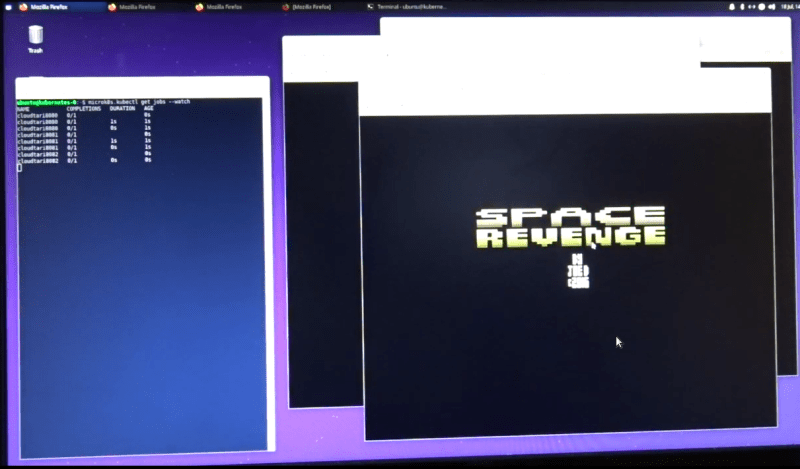While the Google Stadia may be the latest and greatest in the realm of cloud gaming, there are plenty of other ways to experience this new style of gameplay, especially if you’re willing to go a little retro. This project, for example, takes the Atari 2600 into the cloud for a nearly-complete gaming experience that is fully hosted in a server, including the video rendering.
[Michael Kohn] created this project mostly as a way to get more familiar with Kubernetes, a piece of open-source software which helps automate and deploy container-based applications. The setup runs on two Raspberry Pi 4s which can be accessed by pointing a browser at the correct IP address on his network, or by connecting to them via VNC. From there, the emulator runs a specific game called Space Revenge, chosen for its memory requirements and its lack of encumbrance of copyrights. There are some limitations in that the emulator he’s using doesn’t implement all of the Atari controls, and that the sound isn’t available through the remote desktop setup, but it’s impressive nonetheless
[Michael] also glosses over this part, but the Atari emulator was written by him “as quickly as possible” so he could focus on the Kubernetes setup. This is impressive in its own right, and of course he goes beyond this to show exactly how to set up the cloud-based system on his GitHub page as well. He also thinks there’s potential for a system like this to run an NES setup as well. If you’re looking for something a little more modern, though, it is possible to set up a cloud-based gaming system with a Nintendo Switch as well.
















The sound should be doable. You might have to route through an encoder and stream it through the browser as a second tab, but that’s not much more than what has already been done. I know most VNCs don’t do sound, but it should be possible to run it as a second connection in a pinch.
Right tool for the job: use SPICE not VNC.
Shout out for the excellent https://8bitworkshop.com/
Stadia may be the latest and greatest in the realm of cloud gaming? That is an insult to cloud gaming.